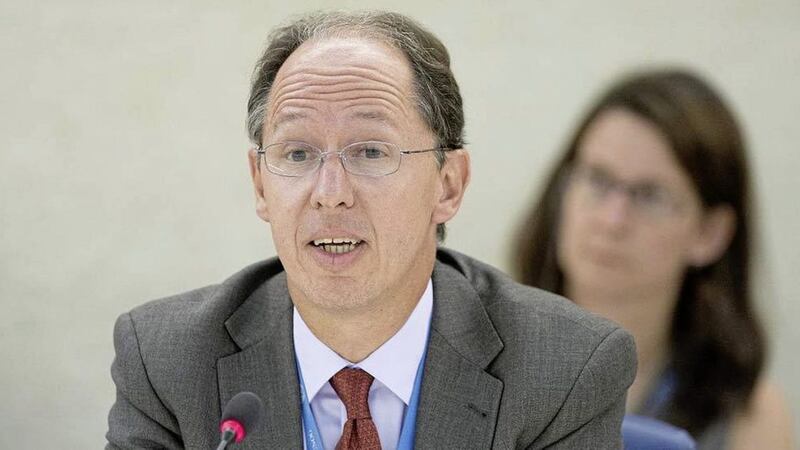NATIONAL security concerns cannot override the British state's obligations to provide information about the past, a hard-hitting UN report has concluded.
The report, by UN special rapporteur Pablo De Greiff, have been welcomed by campaign group Relatives for Justice, which says the report echoes calls for the Lord Chief Justice Declan Morgan’s plan on legacy inquests to be resourced and implemented.
Mr De Greiff's report on the "promotion of truth, justice, reparation and guarantees of non-recurrence" was compiled on the back of two visits to the north over the past 12 months.
It comes in the midst of a logjam on dealing with the past.
Despite widespread acknowledgement that the legacy element of the Stormont House Agreement should be implemented, the process has snagged due to a British government national security veto coupled with a hold-up in the release of funding from Stormont for historic inquests.
The UN special rapporteur recommends that support is given to the lord chief justice's inquest proposals, while saying that national security considerations should "not override obligations stemming from the right to truth"
Relatives for Justice director Mark Thompson said the report was "excellent".
He said the it underlined the need for a process for dealing with the past that was "comprehensive, fully inclusive, robust and above all independent".
"We welcome his commentary and advices around fully inclusive processes and the need for thematic processes including examination of structural violence and the needs of the injured as well as the bereaved," he said.
"In particular we welcome his commentary on reparations for victims in which he states these issues should be tackled seriously and systemically."
Mr Thompson said Mr De Greiff had called for the full implementation of the mechanisms agreed at Stormont House, including the provision by the British government of "effective resources enabling them to function correctly".
"Noting persistent failures around independence, namely the HET (Historical Enquiries Team) and delays around inquests, he has underlined the need for independence and adequate resourcing in all mechanisms to deal with the past as critical to their success," he said.
"We agree that the issue of inclusiveness around victims, should be based on a human rights framework. This must not be sectarian or driven by sectional interests that seek to separate victims and their needs, which has to date promoted and fostered division – we welcome the comments which seek to promote bridge building."
Mr Thompson also noted how Mr De Greiff addressed the "absence of a gender lens" in his report, noting how "the majority of those killed were male and those left picking up the pieces were women".



